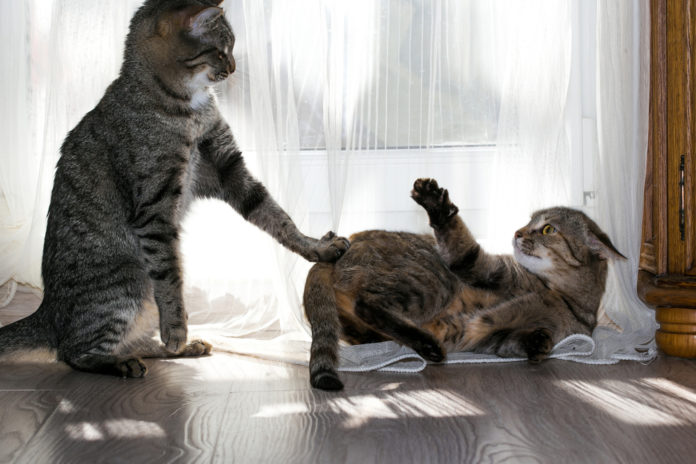Appeal challenging the cancellation of company’s SDVOSB status is granted. The VA’s Office of Certification and Verification terminated the company’s status because, due to infighting between the company’s owners, it could not discern whether the company was still controlled by a service-disabled veteran. OHA found that both owners were service-disabled veterans. Regardless of the dispute, one or both of them controlled the company. Thus, no matter how one looked at it, the company was controlled by an SDVOSB. Indeed, OHA found that CVE had not even articulated a way in which a non-veteran could conceivably control the company.
The Department of Veterans Affairs Center for Verification and Evaluation verified Pro-Sphere Tek, Inc. as a service-disabled veteran-owned small business in 2011. At the time, 40% of the company was owned by Roger Blevins, a service-disabled veteran. Another 39% of the company was owned by Joel Rhoades, who was also a service-disabled veteran. Blevins was the President/CEO of the company. Rhoads was Chair of the board of directors. Blevins and Rhoads were the only members of the company’s board of directors.
In 2019, the Pro-Sphere board removed Blevins from his position. The company hired another service-disabled, Michel Sumrall, to serve as chief operating officer. In the absence of a President/CEO, Sumrall ran the day to day operations of the company.
Blevins filed suit against the company in Maryland state court alleging that his termination was unlawful. Blevins claimed that he and Rhoads had “tumultuous” relationship for two years, and that Rhoads had orchestrated his ouster. Blevins sent several letters to CVE in which he questioned whether, in light of his termination, Pro-Sphere still qualified as an SDVOSB.
Based on Blevins’s letters and a subsequent investigation, CVE terminated Pro-Sphere’s status as an SDVOSB. CVE reasoned that because Blevins had been terminated and was not involved in control or management of the company, it did not appear that a service-disabled veteran controlled the board of directors. Also, due to representations from Blevins and Rhoades, CVE found that it was unable to reasonably conclude that a service-disabled veteran controlled the day to day operations of the company. Under Pro-Sphere’s bylaws, the President/CEO, which had been Blevins, controlled day to day operations, but now it was not clear who was in charge. Finally, CVE found that as a result of the disputes between Blevins and Rhoades, and conflicting representations about who controlled day to day operations, the company could be controlled by non-service disabled veterans.
Pro-Sphere appealed the cancellation of its SDVOSB status to the SBA’s Office of Hearing and Appeals. OHA found that CVE clearly erred in cancelling Pro-Sphere’s status.
OHA noted that under SBA regulations, an eligible SDVOSB must be both owned and controlled by a service-disabled veteran. In this case, there was no question that Pro-Sphere was owned by SDVOSBs. Ownership entails that a concern be at least 51% directly owned by a service-disabled veteran. Here, although he had been terminated as President/CEO, Blevins still owned 40% of the company. Rhoades owned 39%, and he claimed that after purchasing shares from another minority owner, he owned 51%. Regardless of how much Rhoades owned, service-disabled veterans owned at least 79% of the company.
The issue therefore was whether, in light of the infighting, the company was still controlled by a service-disabled veteran. CVE had found that it was unable to conclude that the company was fully controlled by service-disabled veterans. But OHA found a problem with this conclusion: CVE had not identified any non-service disabled veterans that could control the company.
CVE, OHA reasoned, had overlooked the fundamental fact that all of the individuals involved—Blevins, Rhoades, Sumrall—were service-disabled veterans. The company was either controlled by Rhoads alone or Rhoades in conjunction with either Blevins or Sumrall. CVE’s concerns really pertained to which service-disabled veteran controlled the company, not whether the company was controlled by non-veterans. Indeed, CVE had not even identified a mechanism by which a non-veteran could conceivably control the company.
CVE also based its decision on a dispute over the number of voting members on Pro-Sphere’s board. Blevins claimed that only he and Rhoades had voting power. Rhoades claimed there were five voting members on the board, four of which were service-disabled veterans. Again, OHA reasoned, regardless of which characterization was correct, the fact remained, the board was still controlled by service-disabled veterans. CVE had not identified any way in which a non-veteran could control the board.
Pro-Sphere is represented by Jonathan T. Williams, Peter B. Ford, Meghan F. Leemon, and Anna R. Wright of Piliero Mazza.




